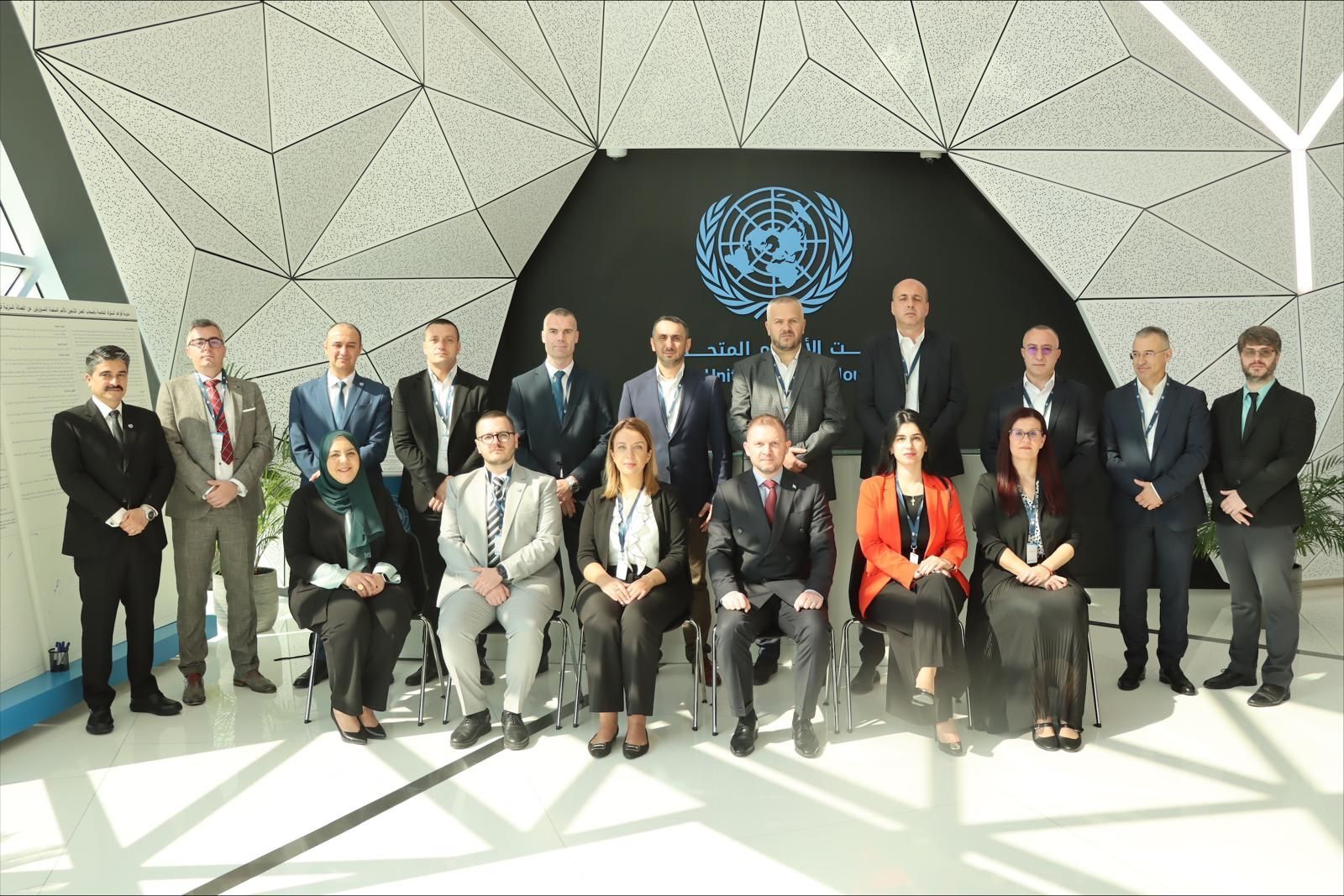Senior Police and Prosecutors from South-Eastern Europe Come Together to Discuss Challenges and Share Best Practices in Preventing and Combating Cybercrime

20-21 November 2024, Doha, Qatar The United Nations Office on Drugs and Crime (UNODC) organized a study visit for senior police officers and prosecutors from South-Eastern Europe (SEE) to the UNODC Regional Centre for Combatting Cybercrime in Doha. During the visit 11 practitioners from Albania, Bosnia and Herzegovina, Montenegro, North Macedonia and Serbia engaged in a two-day workshop on preventing and combating cybercrime.
“Cybercrime poses a significant and evolving threat to security and sustainable development, negatively impacting our societies - youth in particular. The new UN Convention on Cybercrime, which was recently finalized and is expected to be adopted by the General Assembly soon, demonstrates the importance of a comprehensive and global approach in tackling crimes committed through the use of cyberspace”, stated Danilo Rizzi, UNODC Regional Representative for South-Eastern Europe.
“As a global phenomenon, which transcends borders, no jurisdiction can tackle cybercrime alone. With its dynamic technological landscape, increasing digital integration and growth, the Balkan region is not immune to cybercrime. Harmonization of criminal policies and pro-active regional and international cooperation are essential.”, Rizzi added.
The workshop featured a range of interactive activities, including simulations, case scenarios, and multi-purpose exercises, allowing participants to explore advanced cybercrime investigation techniques, the application of person-centric artificial intelligence in open-source and social media intelligence investigations, and victim-centered approaches in cases involving child sexual abuse material.
In presenting the mission of the UNODC Regional Centre for Combatting Cybercrime, the Centre’s Chief, Mustafa Erten, highlighted UNODC’s commitment to support countries in their efforts to combat cybercrime, emphasizing that the workshop was specifically designed to gather insights from SEE jurisdictions regarding their expectations and challenges while providing an opportunity to showcase the Centre's capabilities.
During the workshop, the participating law enforcement practitioners presented key trends and developments in combatting cybercrime in South-Eastern Europe. Based on the ensuing discussion, the participants jointly identified challenges and capability needs in addressing cybercrime more effectively.
The workshop at the Regional Centre for Combatting Cybercrime was financially supported by the government of Norway. UNODC strengthens responses to prevent and counter cyber-dependent and cyber-enabled crimes in the Western Balkans through its Regional Programme for South-Eastern Europe in partnership with the UNODC Global Programme on Cybercrime and the Global Programme against Money Laundering, Proceeds of Crime and the Financing of Terrorism.